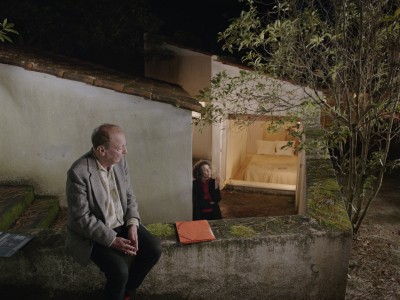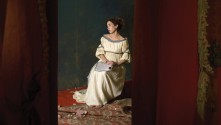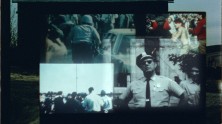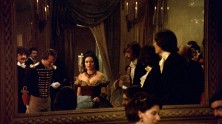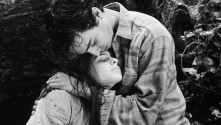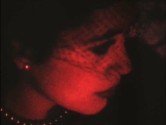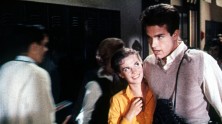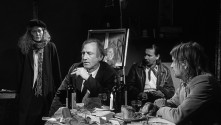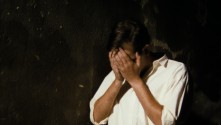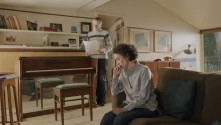
We Can’t Go Home Again
With Richard Bock, Tom Farrell, Danny Fisher.
US, 1973/2011, 35mm, color and b&w, 93 min.
Print source: Academy Film Archive
What does it mean to go back home again? ... pieces of warmth; some of us find them, some of us get a rifle up our asses too.
A film of death (of cinema?) and of simultaneous resurrections. I saw the film in 1985, a rare print, its first version (before the version restored by Susan Ray). I preferred to retain the film that Ray left, it was his Requiem, like Mozart’s in the sense of its incompleteness. Thus, unfinished, out of sync, imperfect, shattered, prefiguring the tragic career of its author, kept apart from filmmaking for a long period. With his Vassar College students—violent and fragile and vulnerable as any of Ray's heroes—its meaning was not perfection, but a tearing of horizons that disavows closure. A daring work, an incomplete work? Nick Ray closes his autobiography; disarms the image of a Hollywood filmmaker and, with the multiple concerns of his students and his own concerns, weaves a filmic document where thought is not linear and time is shattered in multiple images of all formats simultaneously on the screen. Nick, guardian of the temple, Santa Claus casting fire on the waters, long before a famous German friend, or the "master" JLG.
On the long strip of celluloid, life is closed and the work is closed in on itself: in the end as in the beginning. The young lovers living at night, we will meet them again at the end, embracing in a pile of hay in the barn, frightened, suspended. – RA
------------------------------------------
Filme de morte (do cinema?) e de ressurreição simultâneas. Vi o filme em 1985, numa cópia rara, na sua primeira versão (anterior à versão restaurada por Susan Ray). Preferi reter o filme que Ray deixou, foi o seu Requiem, como o de Mozart no sentido da incompletude. Assim, inacabado, dessincronizado, imperfeito, estilhaçado, prefigura a trágica carreira do seu autor, afastado da realização durante longo período. Com os alunos de Vassar College (violentos e frágeis e vulneráveis como são os heróis de Ray) o seu sentido não era a perfeição, mas um rasgar de horizontes que lhe não consente o fecho. Obra arrojada, obra incompleta? Nick Ray encerra a sua autobiografia; despe a imagem de cineasta hollywoodiano e, com as múltiplas inquietudes dos seus alunos e com as suas próprias inquietudes tece um documento fílmico onde o pensamento não é linear e o tempo é estilhaçado em múltiplas imagens de todos os formatos em simultâneo no écran. Nick, guardião do templo, pai natal a lançar fogo sobre as águas, muito antes dum célebre amigo alemão, ou do “mestre” JLG.
Na extensa fita de celuloide fechou-se a vida e fechou-se a obra em si própria: no fim como no princípio – os jovens amantes que vivem de noite, vamos reencontra-los de novo no final, abraçados num monte de feno no celeiro, assustados, suspensos. – RA
